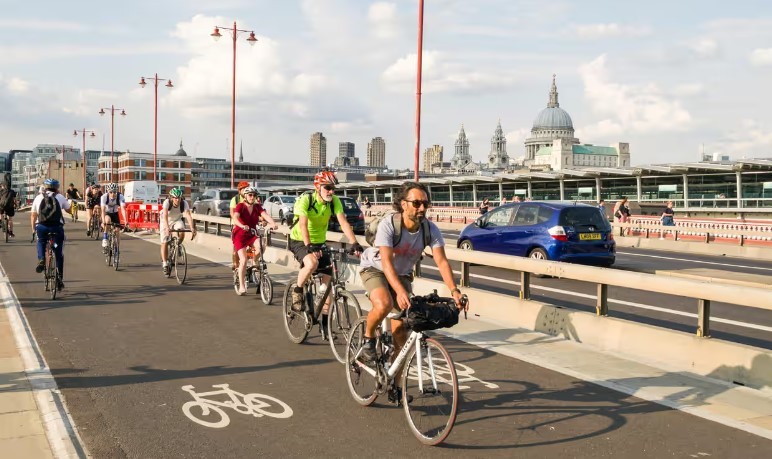
Labour's Decarbonisation Strategy for UK Transport: A Comprehensive Approach
Environmental specialists are advocating for a robust strategy to revamp the UK's transport system as the Labour party unveils its plans for achieving net-zero emissions. Key recommendations include enhancing bus services, constructing bicycle paths, implementing frequent flyer levies, and reopening historic railway lines.
The government's plans for rail nationalisation, expected to be a highlight in the king's speech on Wednesday, are a step in the right direction, but experts stress that more ambitious actions are essential. The proposed railways bill aims to establish Great British Railways, a centralised body to replace the current array of private operators, thereby simplifying fare structures and improving passenger services. However, Mike Childs, policy head at Friends of the Earth, emphasizes the need for affordable and attractive pricing to truly benefit commuters.
Reinstating the northern segment of the HS2 high-speed rail, originally intended to extend from London to Manchester but later limited to Birmingham, would demand substantial new investment. This prospect appears unlikely despite support from businesses, local authorities, and environmental advocates. Nonetheless, the Green party suggests Labour can still make significant improvements by reopening closed local rail links, expanding cycling infrastructure, and enhancing walking routes.
Ellie Chowns, one of the newly elected Green party MPs, highlights the critical role of transport choices in reducing carbon emissions, which constitute about a quarter of the total. She points out that despite this importance, public transport services continue to decline, making them less accessible and affordable.
Richard Hebditch, UK director of the Transport & Environment think tank, urges the government to broaden its focus beyond the railways bill. He stresses the importance of addressing electric vehicles, aviation, shipping, and other transport issues alongside rail improvements. With Labour pledging to return control of bus franchises to local authorities, there's hope for better bus services outside London, where routes have drastically decreased over the past decade.
Paul Morozzo, senior transport campaigner at Greenpeace UK, advocates for substantial investment in public transport. He calls for reducing train fares, extending the bus fare cap, and developing a robust electric vehicle charging network to shift journeys from congested roads to rail and bus, promoting economic growth.
The looming decision on the expansion of Luton airport, deferred by the Conservative government, will soon be on the desk of transport secretary Louise Haigh. This decision could spark tension within the government, as the chancellor has expressed support for airport expansion, potentially conflicting with the UK's legally binding carbon budgets.
Keir Starmer's administration is centered on five major "missions," one of which aims to decarbonise the UK's electricity supply by 2030—a challenging target given the current reliance on petrol, diesel, and gas for heating and transport. Labour asserts that it will meet all green targets without conflict, although the practical implementation of this mission-driven approach remains to be seen.
Labour's green transport policies, including frequent-flyer levies and low-emissions zones, could face backlash from certain groups, such as drivers and air passengers. Childs warns that Labour must be prepared to confront opposition to make meaningful progress in greening the transport sector. He underscores that addressing transport issues, the climate crisis, and air pollution will require measures that may not be universally popular.